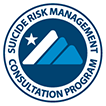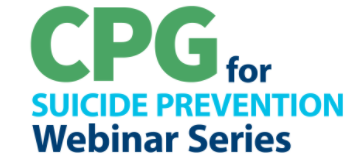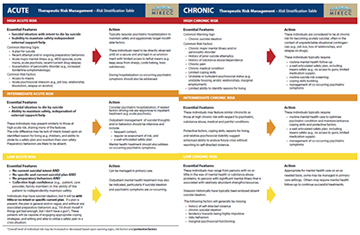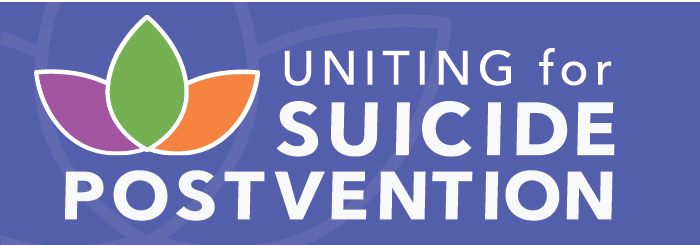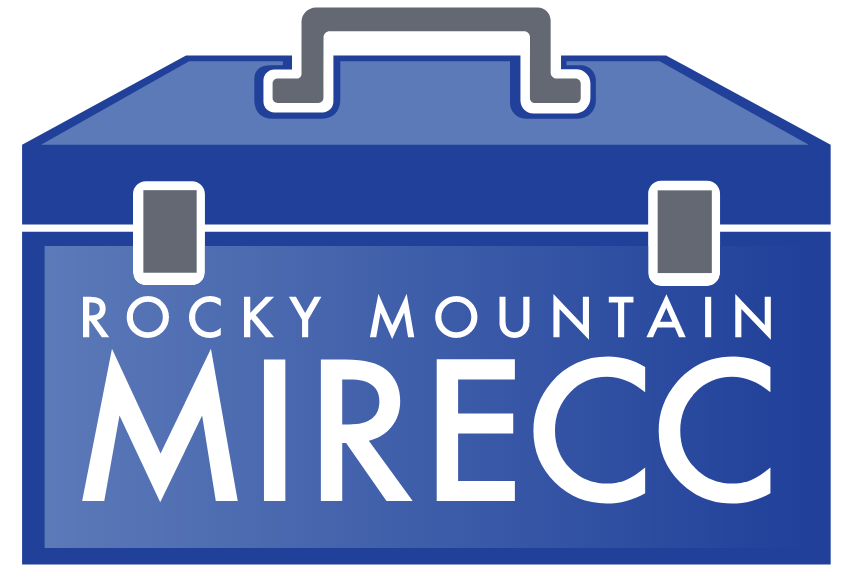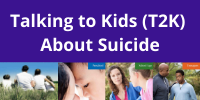MIRECC / CoE
Clinical Core | Rocky Mountain MIRECC for Suicide Prevention
 |
|||
 |
 |
 |
 |
Clinical Overview
The mission of the Rocky Mountain Mental Illness Research Education and Clinical Center (MIRECC) is to study suicide with the goal of reducing suicidal ideation and behaviors in the Veteran population. Towards this end, the work of the Rocky Mountain MIRECC is focused on promising clinical interventions, as well as the cognitive and neurobiological underpinnings of suicidal thoughts and behaviors that may lead to innovative prevention strategies.
Suicide Risk Assessment and Management
VA Suicide Risk Management (SRM) Consultation Program
Providing care for Veterans at risk of suicide may feel like a daunting responsibility. Why worry alone? The Rocky Mountain MIRECC offers free, one-on-one consultation for any provider (community as well as VA) who works with Veterans. Visit the SRM website to learn more and access our lecture series with free CEUs.
Tools + Support + Evidence-based Knowledge = Better Outcomes
Clinical Practice Guideline (CPG) for Suicide Prevention
The VA/DoD Clinical Practice Guideline (CPG) for Patients at Risk for Suicide uses evidence-based information to guide health care providers in screening, treatment and case management. This user-friendly website shares the twenty-two recommendations and accompanying resources in a centralized hub for easy access by mental health professionals. Visit our CPG website to learn more and to access our CPG webinars with free CEUs.
Therapeutic Risk Management (TRM) with Patients at Risk for Suicide
The Rocky Mountain MIRECC model of Therapeutic Risk Management with Patients at Risk for Suicide is a clinically and medicolegally informed model for suicide risk assessment and management. Our Risk Stratification Table is a helpful tool designed to help providers accurately stratify risk and identify associated risk mitigation strategies. To order free copies for your team, visit our online order form .
Lethal Means Safety and Suicide Prevention
Lethal means safety aims to increase the time and distance between someone with suicidal intent and lethal means. Lethal means are objects (e.g., medications, firearms, sharp objects) that can be used to engage in Suicidal Self-Directed Violence, including suicide attempts. Facilitating lethal means safety is an essential component of effective suicide prevention. Visit the Lethal Means Safety website to learn more.
Suicide Postvention
Uniting for Suicide Postvention (USPV)
Losing someone to suicide can be a tremendously painful experience. The Rocky Mountain MIRECC (in partnership with the VA Office of Mental Health and Suicide Prevention), has developed a website for suicide postvention that provides information, suggestions, and best practices to help you or another individual process suicide loss. Visit the USPV website to learn more.
Clinical Tools
Tribal-VHA Partnerships in Suicide Prevention Toolkit
This toolkit provides resources to support VA Suicide Prevention Teams as they build partnerships with Tribes in community-based approaches to suicide prevention. Many parts of the Toolkit may also be relevant for Tribal partners, rural Native Veterans, and Native Veteran family members. The Toolkit includes a guide to building Tribal partnerships; a guide to adapting the VA S.A.V.E. training for use with Tribal communities; and a guide to implementing the adapted S.A.V.E. training in Tribal settings. Download the Tribal-VHA Partnerships in Suicide Prevention Toolkit.
Self-Directed Violence (SDV) Classification System and Nomenclature
In response to the lack of a universally agreed upon definition of suicide and associated terms, the Rocky Mountain MIRECC for Veteran Suicide Prevention partnered with the Centers for Disease Control and Prevention to create a common language, or a nomenclature, related to self-directed violence. Learn more on our SDV Classification and Nomenclature website.
Toolkit for Providers of Clients with Co-occurring TBI and Mental Health Symptoms (TBI Toolkit)
Traumatic Brain Injury (TBI) is a significant public health concern. This toolkit provides mental health clinicians necessary information to address the needs of Veterans/Military Personnel with a history of TBI and co-occurring mental health conditions. Use this online toolkit.
How to Talk to a Child about a Suicide Attempt in Your Family
If there has been a recent suicide attempt in your or your patient's family, this may be one of the toughest experiences you, your patient, and their children may ever face. This guide is intended to provide support and share developmentally appropriate language for talking with kids, as well as, sharing resources as the family starts their recovery journey. Learn more by visiting our T2K website.
Last Updated 3 September 2024
Site Map
Contact Information
Colorado
Rocky Mountain Regional VAMC (RMR VAMC)
1700 N Wheeling St, BLDG A2
Aurora, CO 80045
303-399-8020
RockyMountainMIRECC@va.gov
Utah
VA Salt Lake City Health Care System
500 Foothill DR
Salt Lake City, UT 84148
801-582-1565 ext 2835













